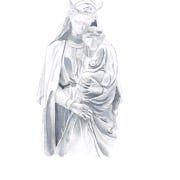Legislative Process, the Left Hemisphere, and Hayek

F.A. Hayek looking ahead 75 years to the world of COVID:
"[A] socialist government must not allow itself to be too much fettered by democratic procedure." F.A. Hayek, The Road to Serfdom
The parallel to the Hemisphere Hypothesis is stunning. The left hemisphere hates to be slowed down. (Rushing, incidentally, is a form of aggression . . . see Robin Daniels, The Virgin Eye. . . . "He who is in a hurry delays the things of God." St Vincent de Paul )
Socialists are gnostics.
Gnostics are governed by their left hemispheres.
Among the Austrian Three (Von Mises, Hayek, Rothbard), Hayek is the "softest," meaning, he (it seems to me) is willing to admit a degree of uncertainty to everything, including libertarianism. Rothbard (again, it seems to me) is the hardest: dogmatic, possibly signaling he was left-hemisphere captive.
I think Brad Birzer realizes this. He wrote on his Substack in early 2024:
Of minor nobility, he inherited little money, but he did get from his parents a love of logic, science, and inquisitiveness. Though nominally Roman Catholic (some have claimed Hayek to have been partly Jewish, but he has no Jewish blood as far as is known definitively), Hayek never took the faith seriously except for one moment after his First Confession. Still, though not practicing, he believed the Catholic faith the only real possibility among several competing monotheistic faiths. “I felt that if somebody really wanted religion, he had better stick to what seemed to me the ‘true article,’ that is, Roman Catholicism. Protestantism always appeared to me a step in the process of emancipation from a superstition.” The logic of Protestantism, the skeptic Hayek argued, was “complete unbelief.” Of all monotheistic religions, he decided, Catholicism was the only truly consistent one. Toward the end of his life, he found an affinity for polytheism but never went beyond a cursory interest. Certainly, Pope John Paul II considered Hayek was of the greatest living Catholic scholars, and when he recognized the Nobel-prize winning economist as such, Hayek did not disagree. And, though nineteenth-century evolutionary thought hovers all over Hayek’s own works, so does the Catholicism of a Tocqueville and Acton.
Hayek on Hayek
Happy 125th Birthday!


